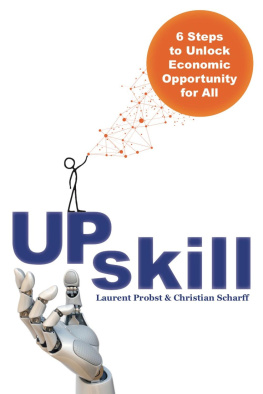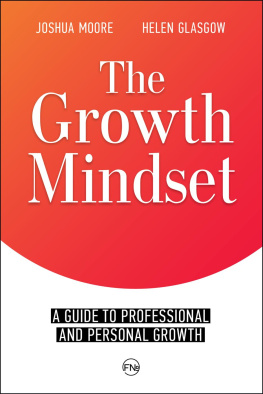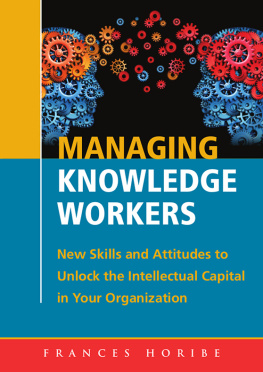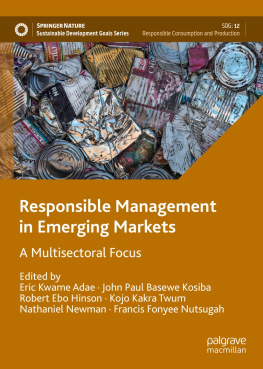The Importance of Highly Pro-active Skills Policies
As an experienced member of the EU Council of Ministers of Labour, I would like to address the difficulties many governments face when trying to adapt their workforce to the challenges posed by the introduction of new technologies. New training methodologies need to be developed and the mind-sets of businesses and employees changed. While industry will have to invest in the continued acquisition of new skills by its employees, the workforce will have to embrace change and seize the opportunities posed by continuous lifelong learning. The development of new skills should be considered an investment in the future prosperity of the company/industry and not as an additional cost.
As can be observed in the case of the Luxembourg Digital Skills Bridge pilot, the aim of the government will be to provide people with a safety net while they are transitioning to a new position/job. The Ministry of Labour, Employment and the Social and Solidary Economy actively encourages businesses to define their digital strategy and to assess their skills needs. Financial support is provided to those wishing to facilitate employee mobility. First conclusions are expected to be drawn by the end of the year/beginning of next year and will be shared with other Member States. We greatly appreciate the efforts being made by the OECD to help States. Upskilling has become, more than ever, the indispensable response to the ongoing technological and economic transformation. It is an essential element of a new social contract which the new technological changes require if we want them to represent an opportunity for all. Employment policies must be adapted in order to fully take into account these new developments that have a strong impact on companies as well as on society as a whole.
Luxembourg as a very open economy has made the choice of becoming an advanced digital society. This certainly means a high level of investment into digital infrastructures but above all to help citizens as well as workers and entrepreneurs to be ready for the future. To do that successfully we are convinced that confidence is key. This can only be achieved through dialogue with all stakeholders. It is the best way to make the digital society as inclusive as possible.
Nicolas Schmit
Minister of Labour, Employment and the Social and
Solidarity Economy
Luxembourg
When Your Knowledge Becomes Obsolete
As many countries anticipate stagnating growth rates in the coming years, Upskill, A 6 Step Solution to Sustaining Economic Opportunity for All, lays out a simple but effective strategy for human capital investment. This book offers a superb incentive for governments, industry and social society to work together to ensure not only continued economic well-being, but meaningful work for the individual.
The authors, Laurent Probst and Christian Scharff, outline key issues that influence local economies today. The straight-forward six-step summary is augmented by an assessment of innovative solutions that can be used to activate key drivers. Uncomplicated math shows the financial advantages, including the vast potential savings associated with providing a rich, rewarding technical development path for workers.
This book, describes the need to unleash upskilling potential through:
governments fostering continuous upskilling through innova tive policies that support life-long learning
organisations matching their digital investment with sustain able technical upskilling initiatives for their people
markets investing in, and profiting from, funds that use sustainable approaches to optimising human capital potential
unions, communities and individuals collaborating to form a more innovative mind-set around diversity
The benefits are clear. Progress is created or at least driven, through tipping the focus away from short-term band-aid measures. Upskilling workers in the ubiquitous technology platforms that intersect with industry today, provides a local, readily available workforce. Supporting workers to participate actively in technical upskilling delivers purpose-filled jobs that build pride. Upskilling fuels local economic growth and energises the dissemination of ideas; it is an integral component in creating a lasting foundation for global prosperity.
In an article in Scientific American Dec. 15, 2018, on the Rise of Knowledge Economics, C. Hildago asked if we are moving towards measuring Gross Domestic Knowledge as accurately as we measure GDP? This book illustrates aspects of this evolution of Knowledge Economics.
This book addresses one of the most critical but soft infrastructure issues of society today, the life cycle of practical skills and/or the sustainable span of professional knowledge. Of course, this issue is not new, but evidence is mounting that the situation is much more serious today than 25 years ago, when we started to address this at Skandia, Sweden. We are heading toward Knowledge Economics and the related challenges for all stakeholders and, most of all, for Future Generations.
With professor Paul M. Romer we addressed the power of innovation and thought leadership in Skandia. Paul M. Romer started developing his theory of endogenous growth and creation by purposeful activities in the marketplace. Romers findings allow us to better understand which market conditions favour the creation of new ideas for profitable technologies. His work helps us design institutions and policies that can enhance human prosperity by fostering the right conditions for technological development. Romer also demonstrated how such endogenous technological change can shape growth, and that policies which are outlined in this book are necessary for this process to work well. This year (2018), he was awarded the Nobel Prize for his work on Knowledge Economics.
Societys Intellectual Capital, as well as that of organisations, is very dependent on our deeper understanding of how to effectively design and implement upskilling initiatives; 6 steps and beyond. That is what this important book is about. Intellectual Capital might also be described as the root of all fruitful endeavours. Roots are often invisible and difficult to measure. The epistemological roots of Intellectual Capital (IC) come from insights derived from the value of brain power or knowledge. The human being is surrounded by systems and technology that can be referred to as Structural Capital. Although our Human Capital is working six to ten hours per day, our Structural Capital might work around the clock; three, four or more times, in terms of productivity. The formula then becomes Human Capital is multiplied by Structural Capital (HCxSC).








